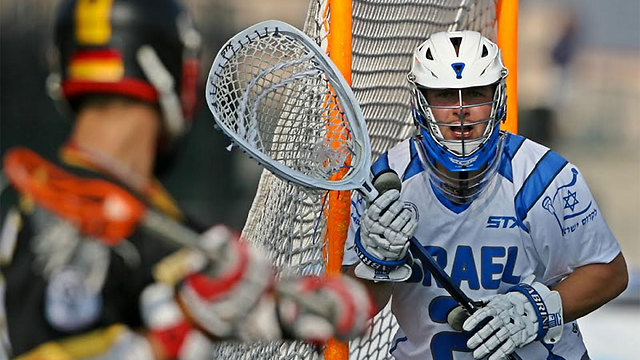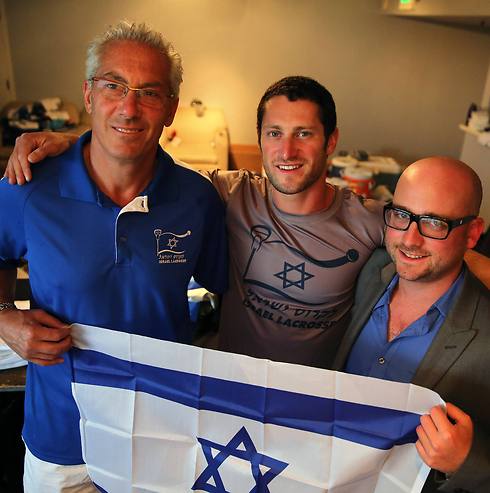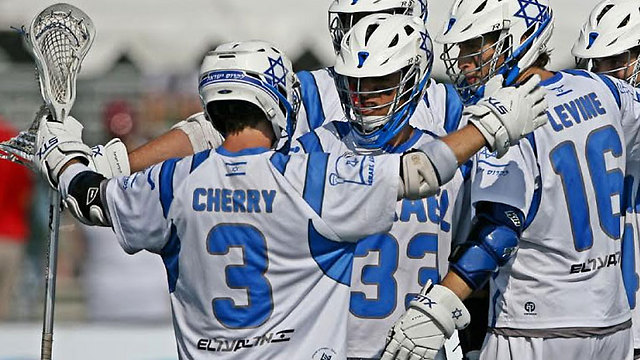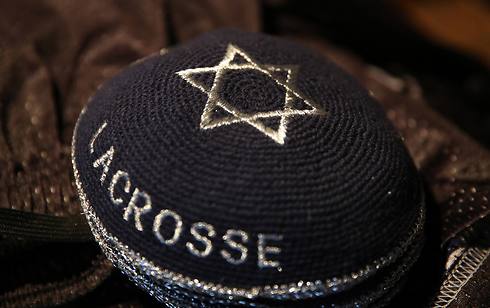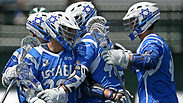
But within a year, Neiss, 32, had immigrated to Israel, introduced the indigenous American stickball game of lacrosse to the Israeli public and founded a national association for the sport–the Israel Lacrosse Association (ILA)–which today has hundreds of players under its umbrella.
“I thought it would be an interesting project to bring lacrosse to Israel, but had no original plans to immigrate to Israel,” Neiss told Tazpit Press Service (TPS). “So after my Birthright trip, I decided to volunteer hours to that project from New York, and raised more than $20,000 through a private program for a first event."
“I started loving Israel and considering it my home only after creating the ILA, living in Israel and building my life,” Neiss told TPS. “People called me crazy but when I contemplated the sheer number of lacrosse players who were Jewish and loved Israel or former lacrosse players who had made Aliyah but did not have the opportunity to play, it was clear this enterprise was not something that was bound to fail.”
Neiss said that lacrosse in Israel is more than just a game. He said it reconnects American Jews with their Jewish identity and Israel, and also serves as a platform to bring together Jews and Arabs.
“The ILA is indeed a Zionist enterprise, but my opinion—and what I consider to be part of our liberal Jewish culture—is also that it serves as a platform representing a bridge for peace,” Neiss said. “This is what sport is meant for, to bring people together. When the Tel Aviv-Yaffo team plays, its members are a team. They could not care less about the who or the what, they just want to win.”
Neiss explained that there are very few opportunities for lacrosse players at the professional level, even though many would like to keep playing after their college years. He brings players for three to five month periods with programs such as the Lacrosse Birthright Trip or MASA.
“The ILA, and specifically the Israel Premier Lacrosse League (IPLL), attracts athletes to visit Israel and gives them the opportunity to play in Israeli teams,” explained Neiss. “This expands the ranks of professional lacrosse in Israel and further permits US Jews to fortify or reconnect with their Jewish identity.”
The IPLL schedule has been specifically designed to attract athletes from the National Collegiate Athletic Association, with summer games during the collegiate offseason. Each team roster, which is currently comprised of players who live in Israel, is bolstered over the summer by 8-10 players from the United States. Through the ILA, hundreds of people have visited Israel and some have even decided to stay.
At the Be’er Sheva Lacrosse Club, a large percentage of the players are from the nearby Bedouin village of Hura, while youth teams in Tel-Aviv-Yaffo are evenly mixed between Jews and Arabs. Rakan Aboneaaj, an American-Israeli-Arab from Brown University who self-identifies as Palestinian, also notably played for the Israeli 2016 under-19 men’s national team.
At a unique event in 2013, a team from Turkey competed in exhibitions against both the Jerusalem Lacrosse Club and an all-star team of players from the United States. The Turks toured Israel and visited Yad Vashem, the Western Wall, Masada and the Dead Sea, attended a Shabbat service and a dinner with their Israeli rivals, and coached youth players from Ashkelon.
“Lacrosse is not a big sport, and this fact creates a tight-knit community of people more committed than in other sports. This devotion creates strong friendships between players from all countries and trumps all barriers,” Neiss said.
Neiss’ efforts to build lacrosse in Israel appear to be paying off. Last month, the coastal city of Netanya was chosen to host the 2018 Federation of International Lacrosse (FIL) Men’s World Lacrosse Championships, scheduled for July 2018. The event will bring together 2,000 athletes from 50 participating countries, and more than 5,000 fans from around the world for the sport’s flagship international competition. The announcement followed on the heels of Israel’s second place finish at the 2016 European championship and a seventh place finish at the 2014 World Championship.
“When we originally presented that first lacrosse pilot event in 2011 to try it out, I felt a unique momentum,” Neiss told TPS. “I realized this was going to be way bigger than a mere project, a real journey, and that I could either jump on the train or get out of the way. So I jumped and never looked back.”
“Five years after starting the project, Israel is ranked seventh internationally and has established an ever-growing domestic infrastructure. I hope that thanks to the 2018 world championships, no Israeli kid will need to ask what lacrosse is in the future,” concluded Neiss.
Reposted with permission from TPS













